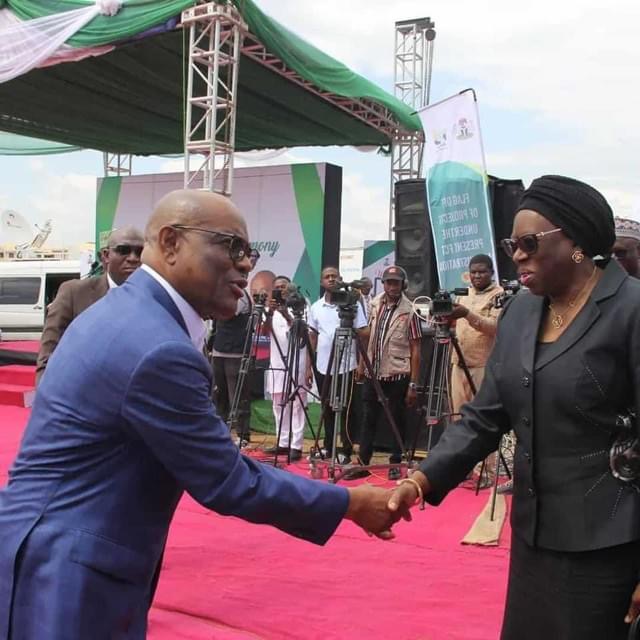After a stint as Minister of State for Education, Wike emerged in 2015 as the candidate of the PDP for the governorship of Rivers State. Following the election on 11-12 April 2015, the INEC declared him as winner, ahead of Dakuku Peterside of the All Progressives Congress (APC). Peterside petitioned challenging the result declared by INEC. The tribunal granted his petition and initially set aside the result. The Court of Appeal agreed with the trial tribunal.
On 12 February 2016, the Supreme Court set aside the judgment of the Court of Appeal on a specious technicality and restored Nyesom Wike as duly elected. The author of the Supreme Court judgment was Kudirat Kekere-Ekun.
In the past week, she and Nyesom Wike resumed mutual acquaintance. In the intervening nine years, Kekere-Ekun had risen to become Chief Justice of Nigeria (CJN), while Wike emerged in August 2023 as Minister of the Federal Capital Territory. The venue was the flag-off of the construction by the Minister of 40 units of judicial housing in Abuja.
Jerome Udoji, one of Nigeria’s best-known lawyers and public servants, was born in Ozubulu in present-day Anambra State around 1912. Udoji was also the first indigenous District Officer in the colonial civil service. He ended his civil service career as Chief Secretary to the government of the Eastern Region under the military coincidentally in 1967, the same year in which Wike officially was born.
When he got the opportunity to undertake a retrospective on his public tour of duty in 1995, fifteen years before he died in 2010, Udoji chose to issue his memoirs with the title “Under Three Masters.” The three masters whom he served, of course, were colonial administrators, post-colonial civilian politicians, and their military usurpers.
Read full Op-Ed… https://chatnewstv.com/op-ed-wiked-judges-and-nyesomized-courts-by-professor-chidi-anselm-odinkalu/


